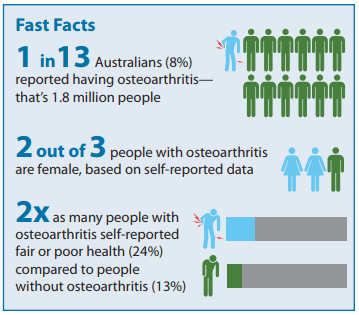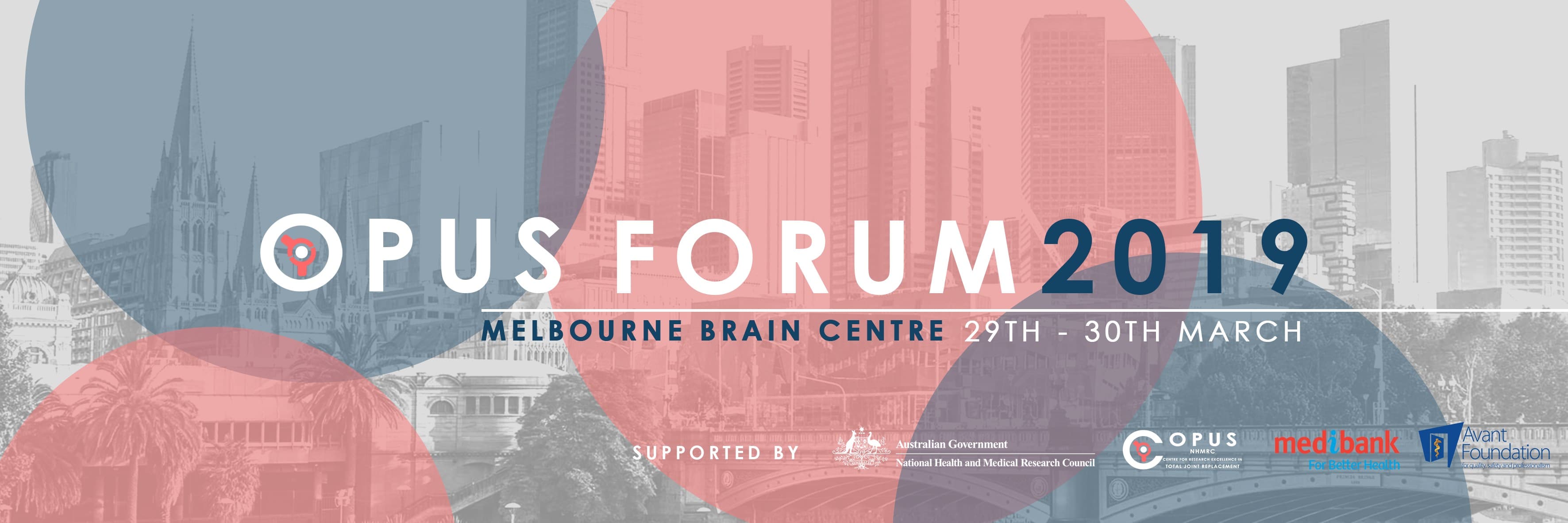For many people with osteoarthritis, the constant pain that they experience as they conduct their daily routine can be debilitating. Simple movement creates excruciating burning pain that diminishes ones quality of life, leading to desperate attempts to find a fix that will eliminate the sensations. While medication is an option, none are as effective as a total joint replacement (TJR). The complete removal and replacement of a joint with a prosthesis is a quick reliable fix.
2.1 million Australians suffered from osteoarthritis in 2014 to 2015 with an estimated $1.5 billion in direct costs associated with osteoarthritis management in 2013. Including indirect costs, this cost expands to an estimate of $4.5 billion.

With a rapidly aging Australian society, demand in TJRs is expected to double by 2030 whereby the cost burden is expected to rise in direct and indirect hospital costs.
And yet 15-30% of patients remain dissatisfied following a TJR. Our research findings indicate patients are overestimating the expected benefits while underestimating the potential harm. There is a need to optimise patient outcomes and redefine best practice when approaching TJR, particularly as obesity rates rise and younger age groups present osteoarthritis.
Led by the Director of Orthopaedics at St Vincent’s Hospital Professor Peter Choong, OPUS is a Centre for Research Excellence that aims to challenge current practice by:
- Redefining what an appropriate patient selected for TJR should be and empowering patients throughout the decision-making process to realign surgeon-patient expectations should they proceed to surgery.
- For those that do not proceed with surgical intervention, safely informing patients of the alternate approaches to effectively manage osteoarthritis must become a priority. This not only reduces costs and surgical risks for a costly procedure but reduces the waiting times for those that genuinely require urgent surgical intervention.
- Redesign care packages that could accelerate rehabilitation and recovery times while removing cost waste and risk of complications.
Funded by the Australian Government’s National Health and Medical Research Council, a core pillar of OPUS is empowerment through education, whether it be for patients, surgeons and young researchers alike.

The Centre’s upcoming inaugural OPUS Forum in March 2019 will see health practitioners, consumer advocacy representatives, researchers and students descend down to Melbourne to discuss the future of osteoarthritis management in Australia. To get involved in the discussion, we encourage you to register now!
Not studying musculoskeletal research but still a student or early career researcher? That’s ok! We’ll be networking with young investigators on the Friday 29th March 2019 at the Melbourne Brain Centre, Parkville and exploring practical topics like: what lies beyond your PhD, handy tips on surviving academia and what you need to do NOW to shape your research career.
For further information and to register, visit https://opus-tjr.org.au/2019-opus-forum or contact opus@opus-tjr.org.au
